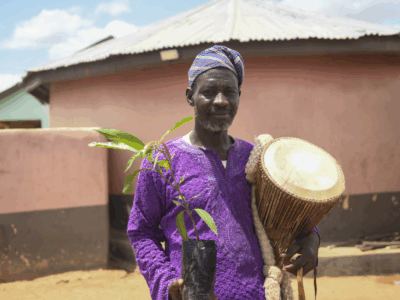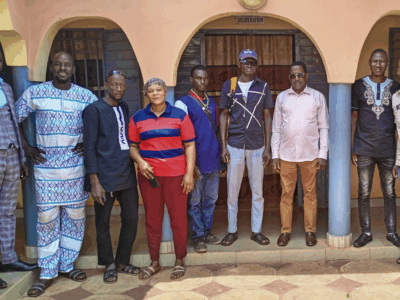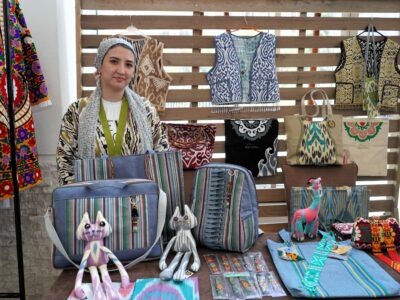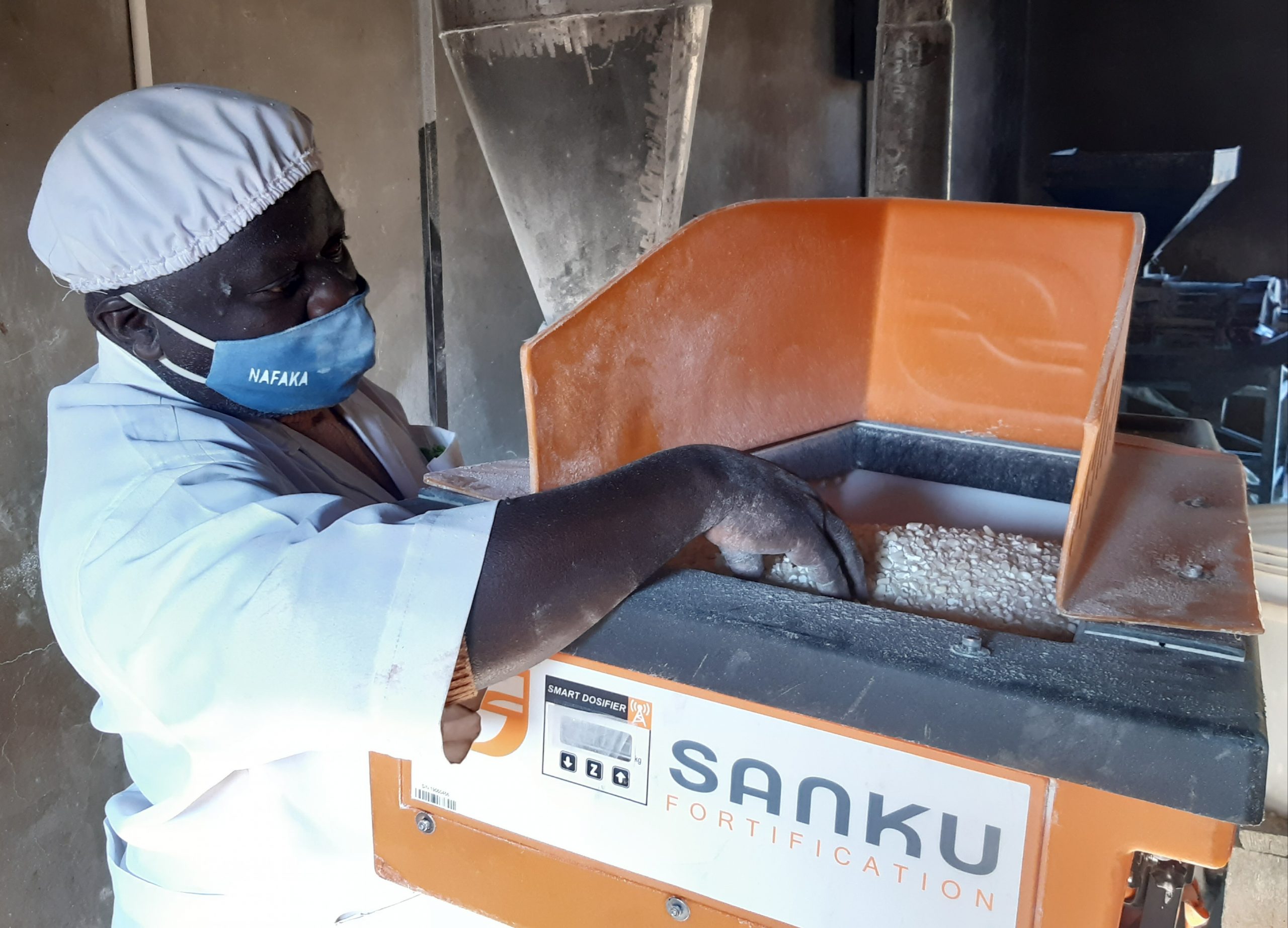
Many people in Tanzania’s Southern Highlands rely on maize flour processed at local mills for the bulk of their daily food consumption. However, this maize flour, commonly known as sembe, is often stripped of its vitamin, fat, and mineral content during processing. This leads to poor nutrition and stunting among children. For example, children under the age of five in the Njombe Region experience stunting rates of 53 percent, compared to the national average of 34 percent, according to the 2019 Tanzania National Nutrition Survey.
To improve nutrition in these areas, the Feed the Future Tanzania NAFAKA II Activity teamed up with local millers in Iringa, Njombe, Mbeya, and Songwe to help them process and sell fortified maize flour.
In June 2020, the NAFAKA II Activity, which is funded by USAID and implemented by ACDI/VOCA, designed a pilot program called the “Fortification Roadshow.” This roadshow aimed to engage last-mile posho (maize flour) millers and schools in promoting and consuming more fortified flour.
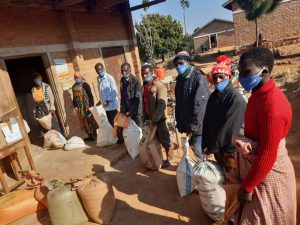
The roadshow visited millers and schools in five districts throughout the Iringa, Njombe, and Songwe regions to address stunting and malnutrition, especially during the pandemic. Messaging focused on the fact that the iron, zinc, folic acid, and vitamin B12 added to the flour helps with brain development in younger children and strengthens the immune system.
Based on Collaborating, Learning, and Adapting (CLA) research conducted by the NAFAKA II Activity, the pilot program confirmed that farmers were willing to pay an extra fee of 200 Tanzanian shillings per 20-kilogram tin to fortify maize for their own families’ consumption. And farmers who brought maize to fortify were satisfied with the results, reporting no difference in the taste, aroma, or color.
Improving millers’ access to fortifying technology
The NAFAKA II Activity also connected millers and schools with Sanku-Project Healthy Children so that they could receive fortification packages, including branded packaging, premixes, and dosifier machines, which add a precise amount of nutrients into the flour. Sanku is a Tanzanian company that developed the innovative “dosifier” technology. Millers and schools also received training to ensure they met government standards, including hygiene and food safety protocols.
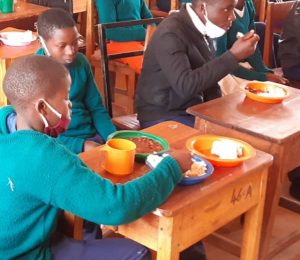
This enabled 37 millers to produce 7,410 metric tons of fortified maize flour in the Southern Highlands. These millers fed an estimated 44,460 people and supplied flour to 75 schools, reaching more than 22,500 students. However, a major constraint remained in reaching last-mile, rural consumers, as most millers exist in urban and peri-urban areas.
Reaching last-mile consumers in rural areas
The NAFAKA II Activity designed a strategy to help millers increase the quantity of fortified flour they produce in a sustainable way to reach last-mile consumers. This was done not only by providing grants for procuring equipment, but also through a social behavior change and communication campaign.
Village government leaders and community health workers, through the support of local government authorities, led the campaigns via meetings, household visits, SMS texting, and posters sensitizing communities to the health benefits of fortified maize flour. This took place in the Iringa Rural, Kilolo, Wang’ing’ombe, Momba, and Mbozi districts. Campaigns ran for two weeks and reached 743 consumers, including 275 women, 161 men, and 307 youth, plus five posho mills.
The SMS texting campaign enabled 208 people to fortify their maize at the selected mills. Because of the COVID-19 pandemic, word-of-mouth communication conducted by local government authorities and community health workers replaced community mobilization methods, such as spreading messages over a loudspeaker. The word-of-mouth method prevented mass gatherings and reached an additional 164 people.
Engaging government officials, health workers, and religious and school leaders proved effective in promoting fortified flour among rural communities.
Learn more about the Feed the Future Tanzania NAFAKA II Activity.
Learn more about our work in Tanzania.

